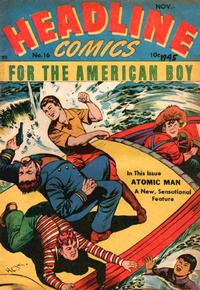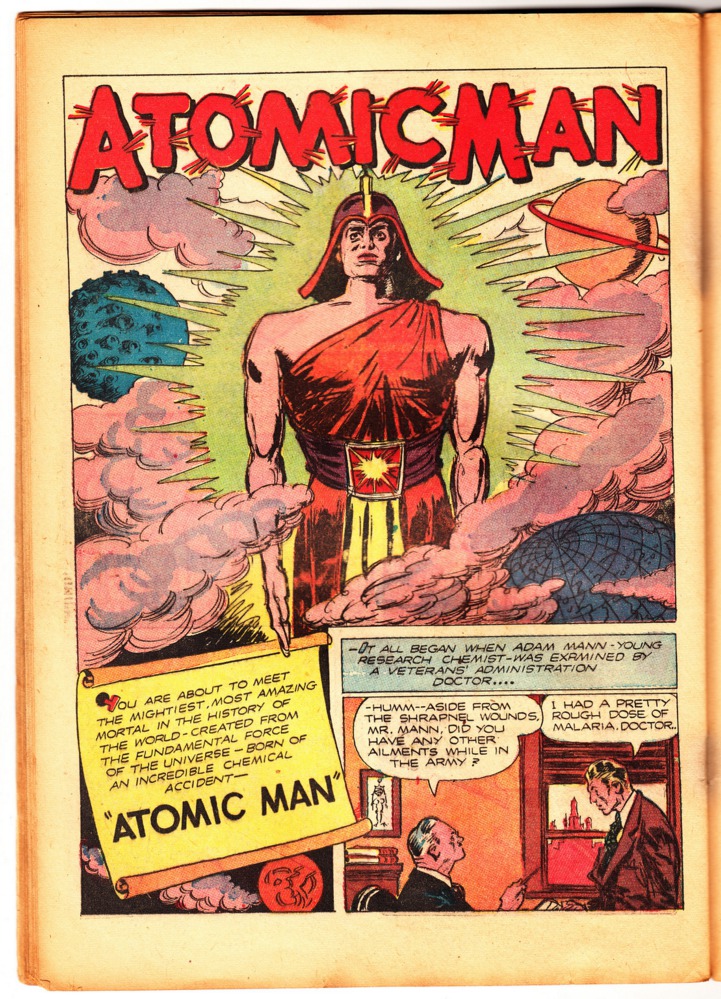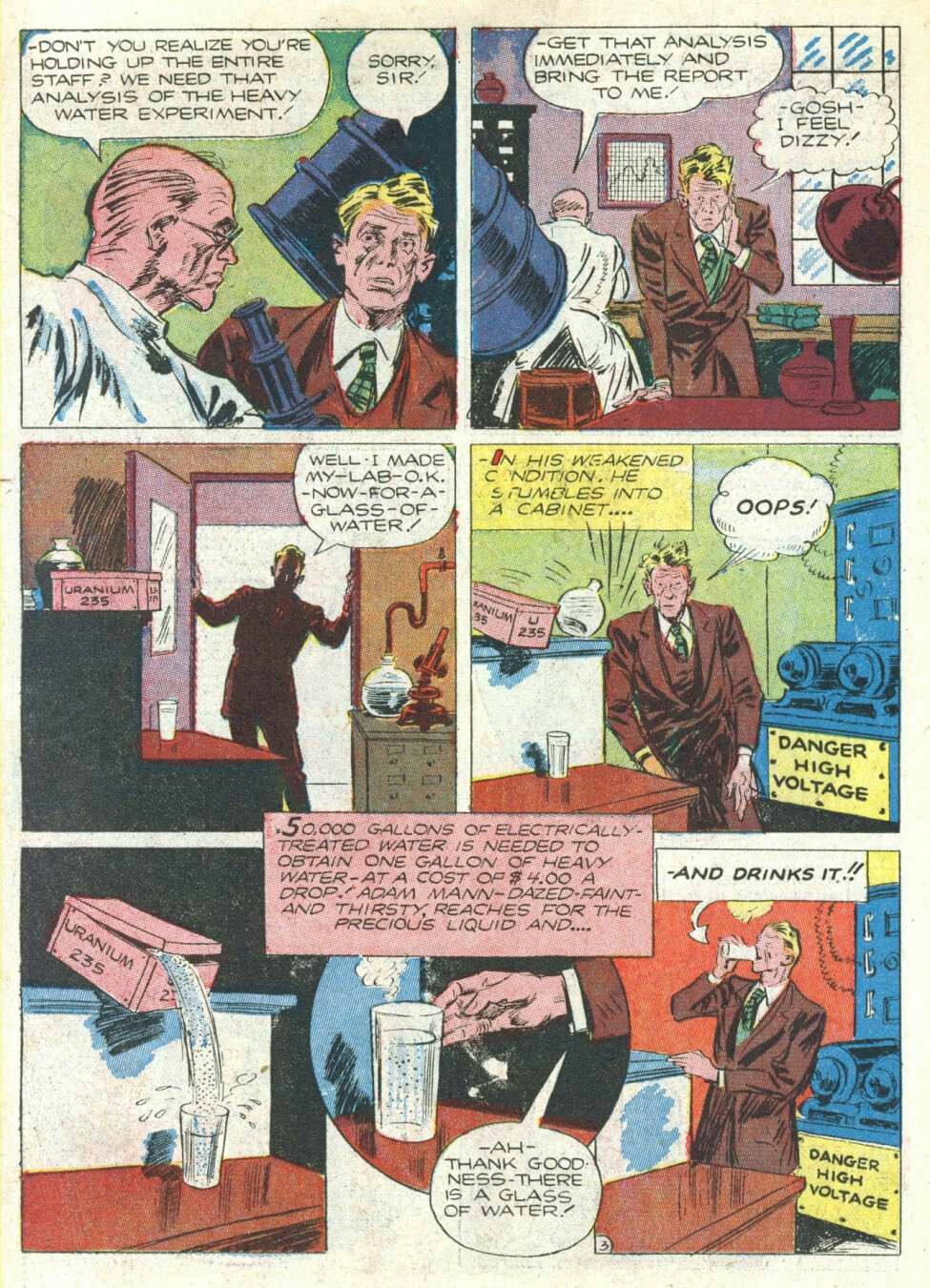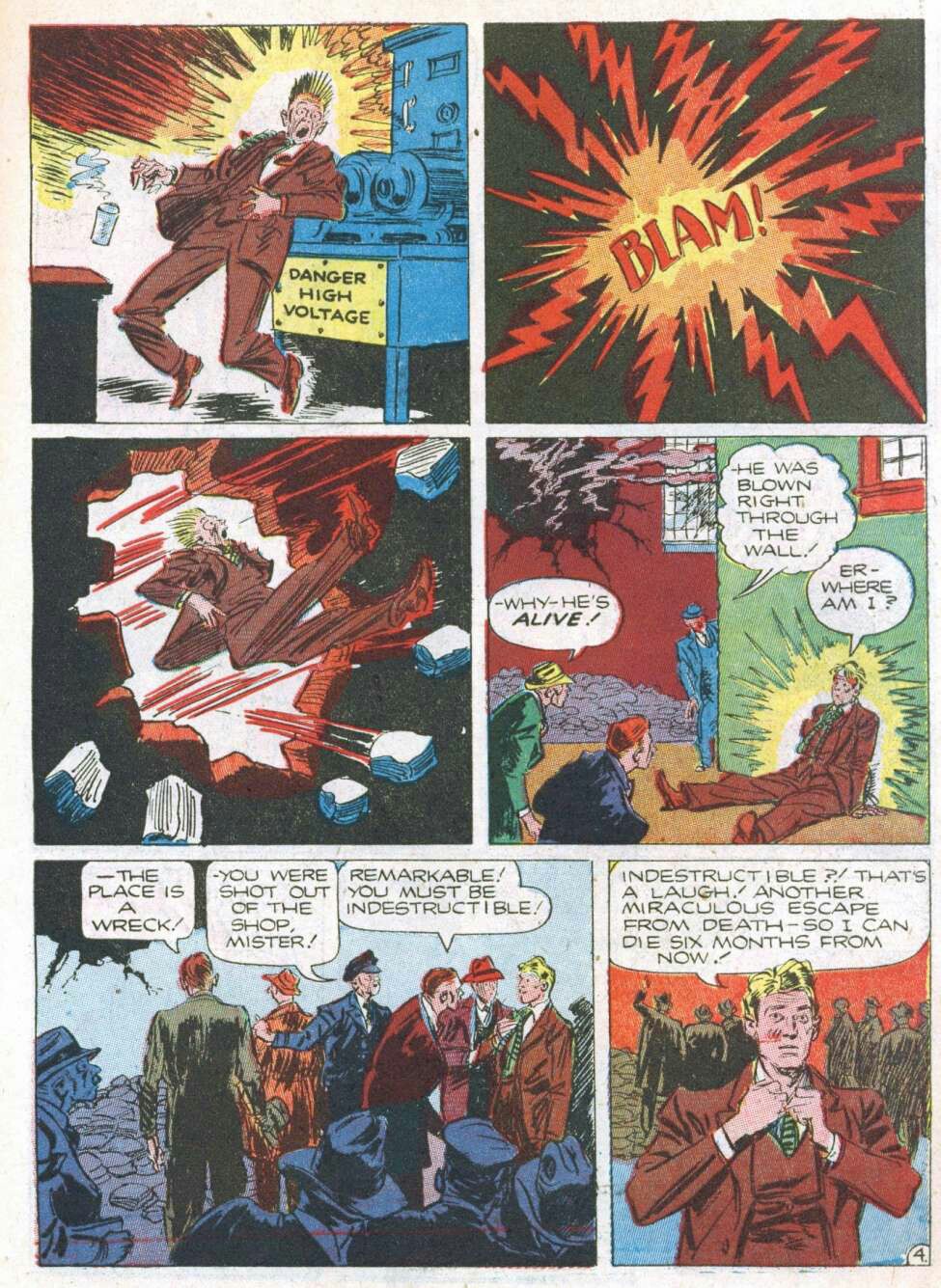What is the first person to gain their superpowers through exposure to radiation? I am thinking of comic book heroes and ionizing radiation (such as gamma rays) rather than, for example, folklore where someone gains powers from ordinary sunlight (although I am not aware of any such stories). The person gaining superpowers could be a superhero, a supervillain, or a super-couch-potato.
Toxic sludge doesn't count, unless the sludge is radioactive. Spider bites have to be from radioactive spiders, etc.
This question is highly related, but it didn't ask for the earliest example, and neither answer lists specific examples. The article linked to by Darius's answer on that page hints that the idea of radiation causing superpowers originated in the 1950s, when society was concerned about the effects of radiation. But the public was already aware of the dangers of radiation in the 1940s, if not earlier.
When was the first story about someone gaining superpowers from exposure to ionizing radiation? The story doesn't necessarily have to be from comic books.
Addendum: I wrote this question with comic-book heroes in mind, and Jonah's answer seems to be the earliest example of a superhero gaining his powers from radiation, in 1945. But since I didn't limit the question to comics, other people posted several very good answers from earlier science fiction.





someone gains powers from ordinary sunlight-- that would be Superman. Though most modern viewers may not be fully aware on the origin of Superman's powers (most seem to simply assume that he's powerful simply because he's Superman) it is the light of our yellow sun that gives him his powers